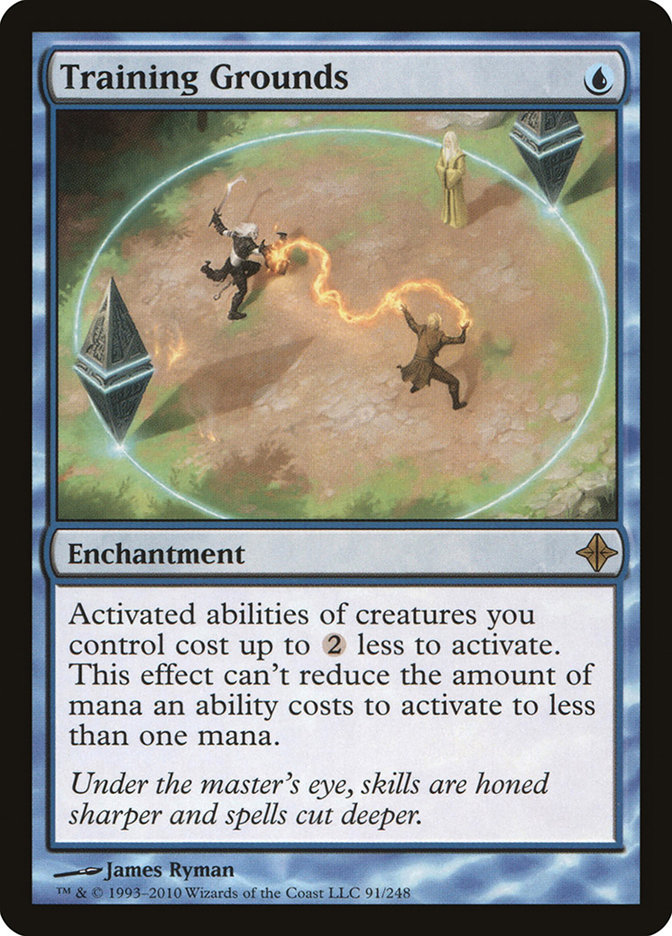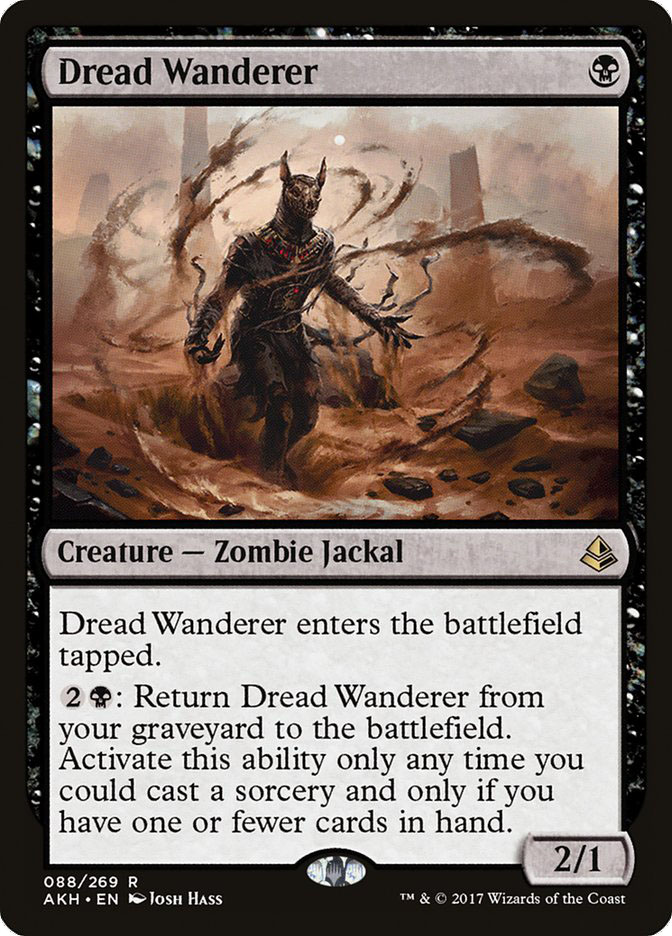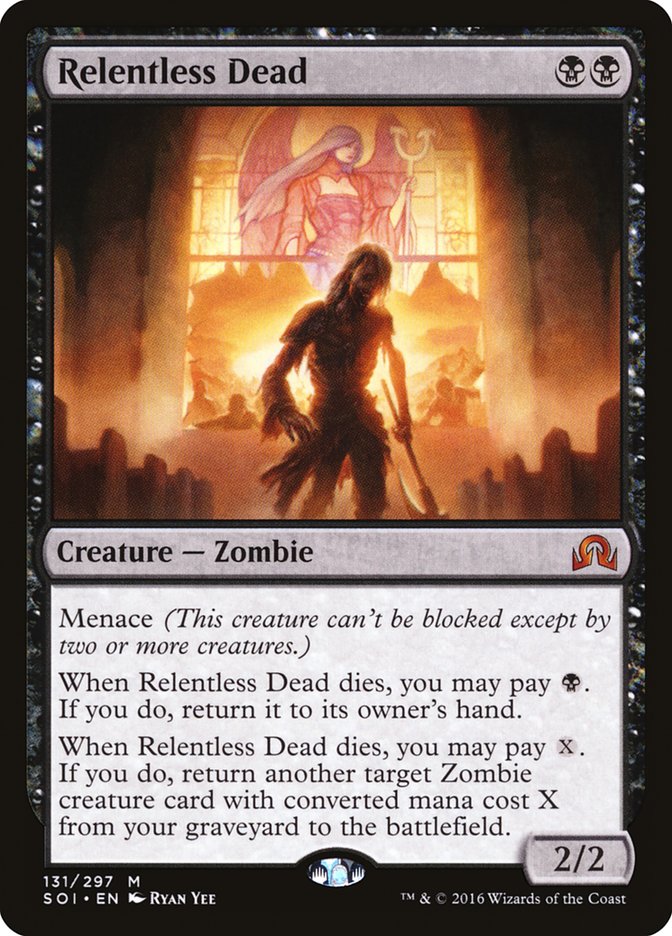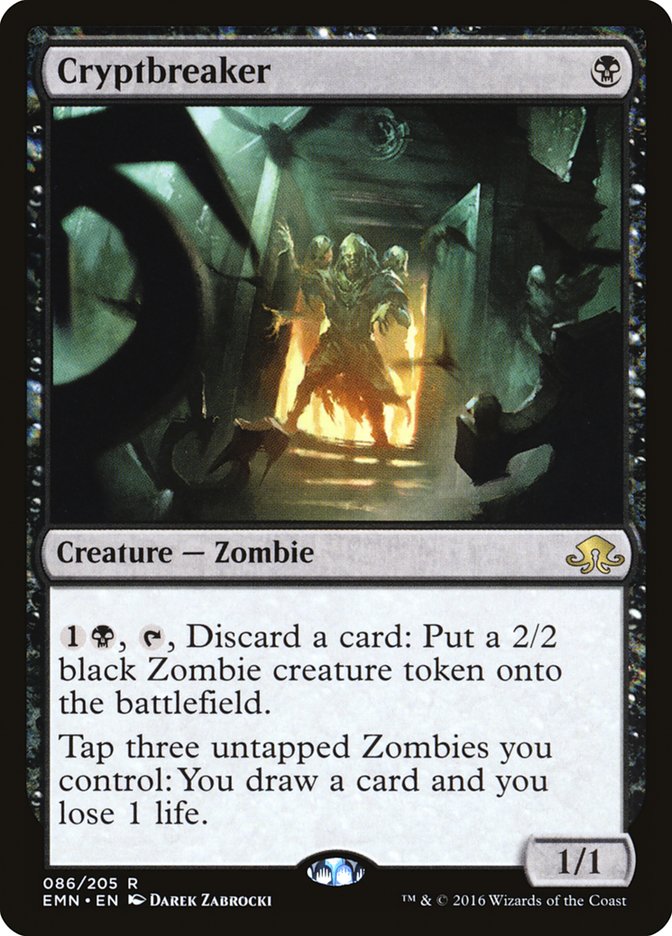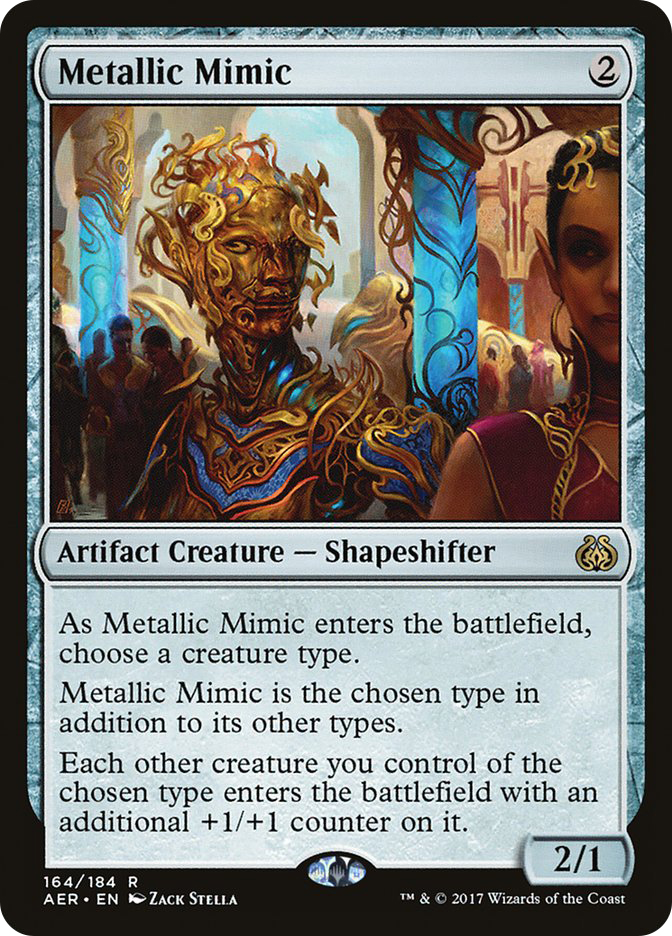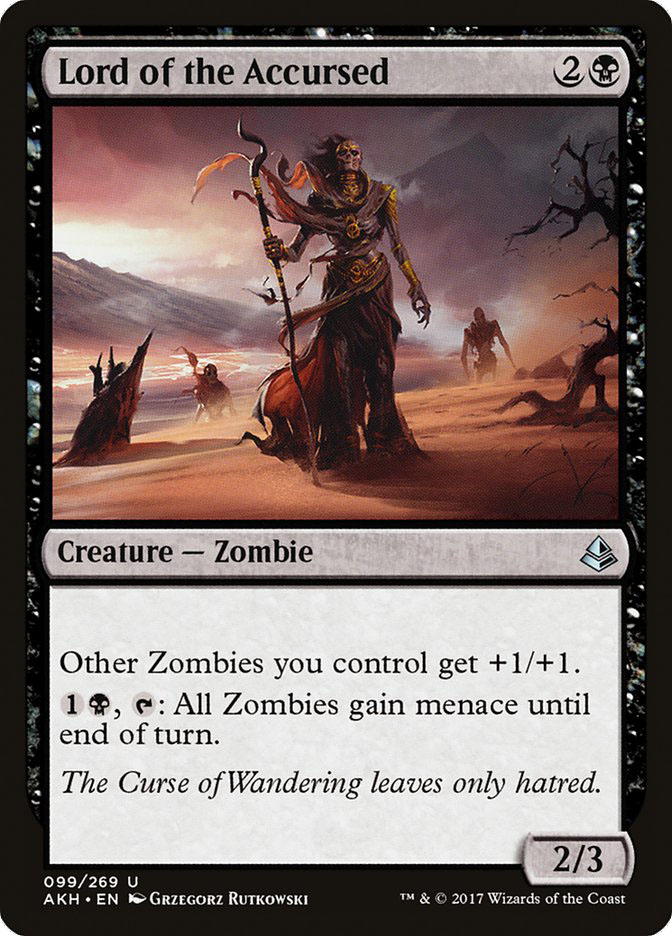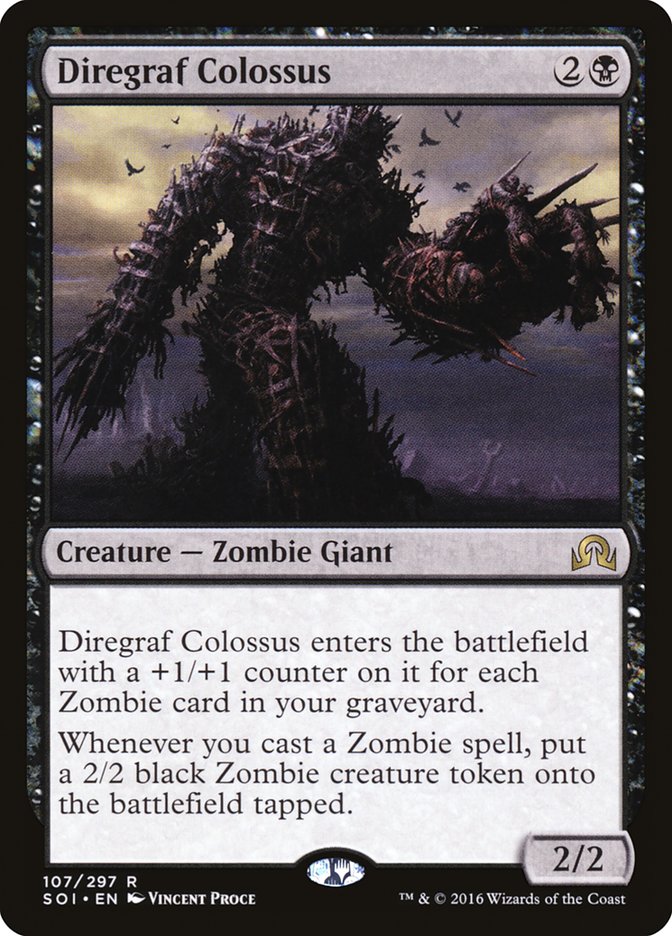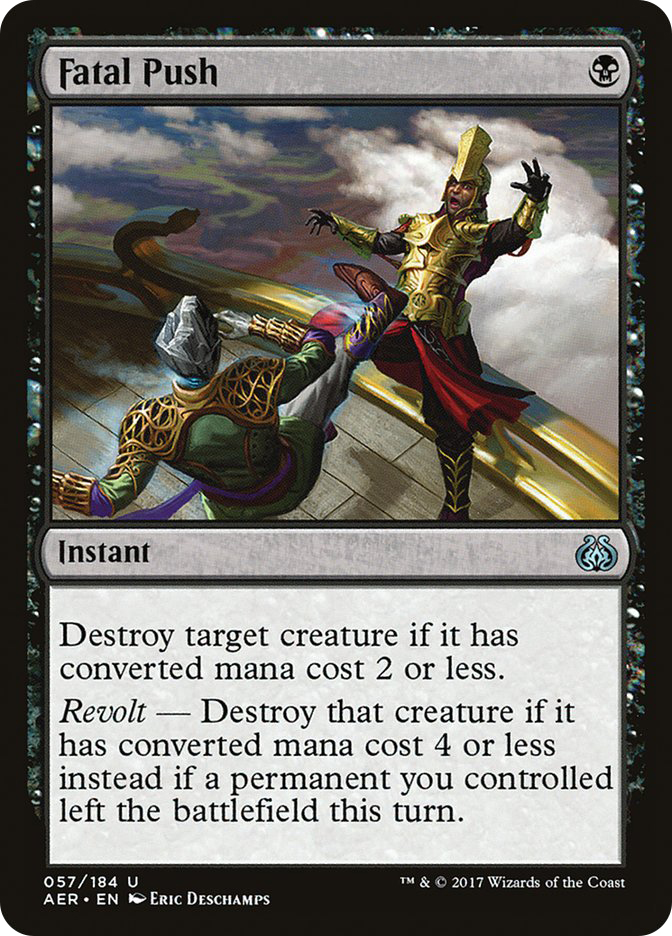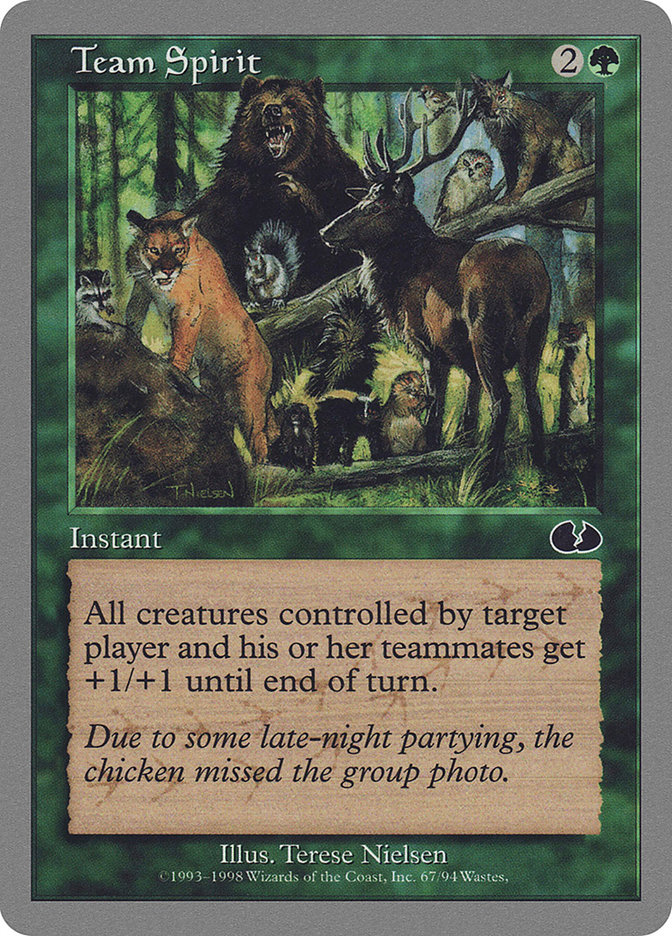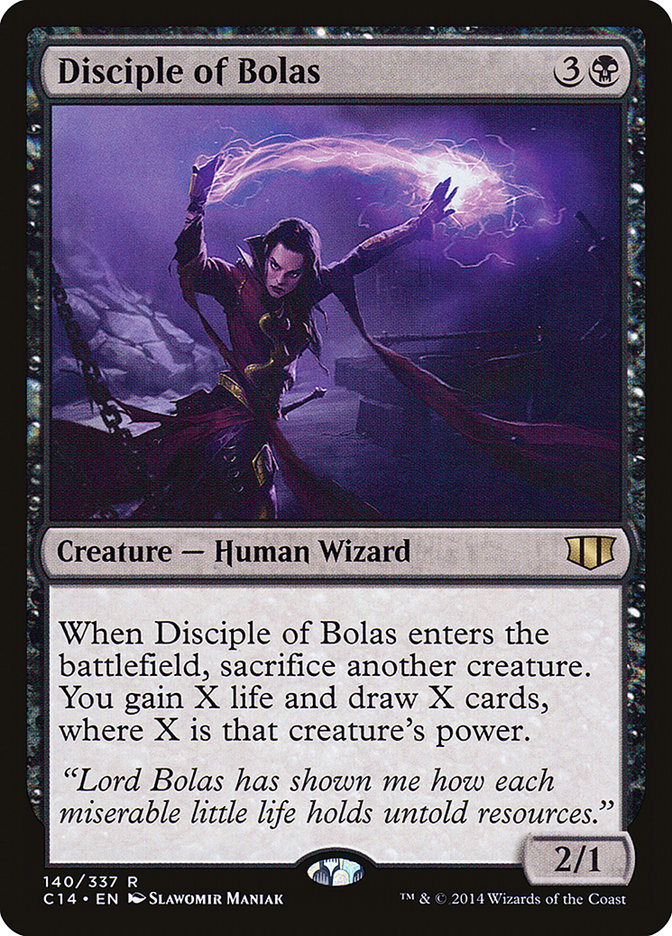I’m kind of a broken record sometimes. Most of my articles have a pretty common closing: Play more Magic.
Seriously.
Monday? “There’s no replacement for actual played games of Magic.”
Two weeks ago? “Is there a specific trend that seems to stick out in these descriptions? Play more Magic!”
I’ve been blessed with the opportunity to appear on a few podcasts and be interviewed by Magic personalities, and one of the most common questions I tend to answer is “What is the difference between pro-level Magic players and people who aren’t quite there yet?”
The shortest answer to this is that great players tend to have plans when they play. Everything is done with purpose, and with some semblance of understanding behind the decisions being made. This comes as a result of playtesting and learning which plans need to be executed at what point.
One of the responses to my article earlier this week really stuck with me in a way that I thought worth writing an article to address:
“Emma, what if somebody doesn’t actually know that they’re doing something wrong? Won’t playing more games tend to reinforce bad habits?”
Absolutely. So let’s cover the basics and talk about playtesting.
Playtesting 101
Playtesting is playing games of Magic with a purpose. Playtesting can be against random opponents on Magic Online, against friends, or even in a tournament setting. Playtesting is what people do learn. It might be trying to understand a matchup, sequencing for a deck, or even just trying to get used to different ways playing Magic.*
* I spent a week or so playtesting a deck that I already knew quite well with the sole intention of un-learning the lands-up-front way I used to play. This isn’t as uncommon as I thought.
One of the most important aspects of playtesting is understanding that winning isn’t the goal; learning is. Don’t be afraid to risk throwing a game in the trash for the sake of trying out a new sideboard plan.
When playtesting, a large chunk of what should be occurring is identifying the things that are done correctly and, more importantly, the things that aren’t.
Playing Cards With Purpose
In my most recent article, I went through a few “tried and true” sayings in Magic and talked about why they didn’t quite hold true anymore. Discovering why many of these don’t apply today didn’t come overnight. It was through a method of playtesting that I regularly practice when playing online: I explain everything.
I touched on this in the opening of the article, but the largest difference that I see between good players and great players is that great players tend to have reasons for every single decision they make. Sometimes the explanation is easy, and sometimes it takes a personal essay in dialogue form to justify a play.
The instance that this tends to be the most applicable is in a deck with a low number of a specific kind of resource against a deck where that resource will be stretched. For example, a deck with a low number of removal spells needs to understand which creatures to pick off when playing against an archetype with a higher density of creatures.
Assume you’re playing the following G/B Energy deck:
Creatures (28)
- 2 Verdurous Gearhulk
- 4 Longtusk Cub
- 3 Bristling Hydra
- 4 Greenbelt Rampager
- 4 Winding Constrictor
- 3 Rishkar, Peema Renegade
- 4 Glint-Sleeve Siphoner
- 3 Walking Ballista
- 1 Rhonas the Indomitable
Lands (21)
Spells (11)

It’s Game 1, and you have a single copy of Fatal Push in your hand. Your opponent has only played a Dread Wanderer off a basic Swamp, and it’s apparent they’re playing some sort of Zombies variant.
Your deck only has four copies of Fatal Push in the main deck, and one of Zombies’s strengths is that it has several “must-answer” threats. This means that each Fatal Push is going to have to pull a lot of weight. Pointing the removal spell at the proper card will absolutely be the difference between a game won and a game lost, and it isn’t always going to be the same creature, either. Every bit of it is going to depend on what else is going on.
It is probably not Dread Wanderer. Dread Wanderer on its own is one of the weakest cards in the deck and gets outclassed by the creatures in G/B very quickly. That doesn’t even get into the fact that it can bring itself back for free.
Most of the time, Relentless Dead isn’t going to be the answer. On top of the self-recursion associated with the card, Relentless Dead doesn’t contribute a large amount of pressure to the table or provide very much in terms of card advantage. This doesn’t even get into the fact that, similar to Dread Wanderer, a 2/2 gets outclassed by most creatures in G/B almost instantly.
Is your hand shaping up to be a draw that needs to go for the mid- to long-game? Kill Cryptbreaker. It will singlehandedly bury you in cards. Zombies just has to produce bodies and sit back with its one-mana Phyrexian Arena on steroids. If your draw is particularly fast, Cryptbreaker won’t have the time required to get too far off the ground, and Zombies may have trouble maintaining a battlefield that can compete with a bunch of early pressure.
If your plan with creatures is to play a reasonable number of X/3s and hope that that is good enough, killing the lord effects out of Zombies is paramount. This will prevent their creatures from outsizing yours and forcing unfavorable trades.
When the plan from an aggressive strategy is to go around what the opponent is doing, the most important thing that can be killed is the creature that attaches more bodies to every creature spell that follows it.
All of these are just for when to cast Fatal Push! This exercise helps determine what parts of your play you are consciously thinking about and which ones where you’re just going through the motions. The reason for playtesting is to gain understanding. Just going through the motions is a waste of time and doesn’t encourage learning.
Being methodical may make the games take longer, but speaking from experience, it seriously helps your game come up. Things tend to “just work out” a little more often when you understand what you’re working towards.
Wins and Losses Don’t Matter
You read that right. It doesn’t matter if you win or lose. What matters is how cards feel in-game and how they stack up with one another. When trying to determine matchups and positioning in a metagame, win/loss percentage is going to be a factor, but when trying to figure out how to play a matchup, wins and losses aren’t the important part of playtesting. In some cases, wins and losses aren’t even a way to determine if a deck is good or not.
Creatures (19)
- 4 Catacomb Sifter
- 4 Blisterpod
- 4 Thraben Inspector
- 4 Anointer Priest
- 1 Angel of Sanctions
- 1 Oketra the True
- 1 Dread Wanderer
Planeswalkers (1)
Lands (25)
Spells (15)
Sideboard

Last week, Sam Black posted this Abzan Tokens deck, and with Aetherworks Marvel exiting the format, having a strategy that goes arbitrarily wide sounded like a great way to trump midrange mirrors. Six hours and a stream later, I was 0-X, where X = the number of matches played. In spite of losing every single match played with the deck, I have neither put the deck down nor played anything without Anointed Procession all week. Why?
Most of the losses were either my fault or something I wasn’t planning to beat. Three of my losses were to Haze of Pollen decks. That just isn’t something that I’m necessarily trying to prepare to beat. It’s okay that Abzan Tokens had trouble losing to those decks; they were fighting on an axis that Abzan Tokens isn’t.
The losses that were my fault? I’ve fixed a lot of those problems. Sequencing is difficult, and the deck has so many moving parts that it can be easy to miss little tricks that add up to sizeable chunks of advantage.
Despite feeling like I was beating my head against a wall and losing for six hours straight, I’ve learned a lot, and my win-rate with the deck has dramatically improved. Am I going to play the deck at #SCGINVI? It’s not incredibly likely, but in the case that it ends up playtesting well against the expected metagame, I want to have a general understanding of what is going on in order to pilot the deck proficiently when the time comes.
Be Open to Criticism
When playtesting with other people, be open to their suggestions on your play. If your playtesting partner isn’t somebody whose input you respect, one of two things needs to happen:
- You need to find somebody that you respect with whom to playtest.
- Re-examine why it is that you don’t respect your playtesting partner’s input. If you’re taking the time to playtest with them, they likely have input that is valuable to you, and it should be treated as such.
Nobody is going to be perfect, but the best advice that I can offer when selecting playtest partners is to find somebody with similar dedication and aspirations in the game.
I’ve been playtesting with Jake Humphries for over half a decade, and it all started at our local game shop. We barely knew each other, but because we both wanted the same things out of the game and put similar amounts of effort into the game, we started working together. This has translated to mutual growth and both of our games’ coming up dramatically.
Today, I also work with Jadine Klomparens near-constantly. We originally began talking at SCG Tour events when we realized that we were chasing the same goals. At the point that we realized we approached the game in a similar fashion, we started working together.
When working with either of these people, I understand that when they tell me I am doing something wrong or question why I’m making a play, it isn’t derogatory. It isn’t an attempt to belittle me or even necessarily criticize a play. In many instances it is nothing more than my teammate asking for the reasoning that I thought something was correct. They’re trying to learn. The opposite is true as well.
Despite varying situations that led to each playtesting partner, both of my main sources of one-on-one Magic practice have stemmed from me and someone else having similar aspirations in Magic. The friendships and trust that came along with it were just bonuses.
When searching for potential playtest partners, it is important to be upfront with them and tell them that your intention is to seriously playtest and not play casually. That bridges wonderfully into my next point:
Be Methodical
Similar to playing cards in-game with purpose, make sure that your playtesting is done with purpose.
Play games and treat them as if it were a tournament. Play games open-handed. Play out different permutations of the same turn over and over and over. Swap decks for a few games. Practice different decks against one another.
There are dozens of different ways to practice with decks and make sure that you’re getting the most out of it. If you have a large group of people playtesting with one another, it’s even reasonable to hold mock tournaments in order to get games in against a wider array of archetypes in the format. This is particularly useful in Eternal formats, as they tend to have a more diverse metagames due to their larger card pool.
A little over a year ago, the Disciples of Bolas team that I was a part of did a multi-week testing boot camp to figure out what the best decks would be with Khans of Tarkir rotating and Shadows over Innistrad being printed. We assigned different decks to different people, tried variations of decks that weren’t doing so well, and recorded win rates of decks against the field using a Google Spreadsheet. We even created a Slack channel dedicated exclusively to notes on archetypes.
The result? Ali Aintrazi and I both finished in the Top 16 and Dwayne “DJ” Graham made the elimination rounds with a list of ours he tweaked to incorporate green. The weekend was a huge success for us, largely in part to the amount of preparation we put in coupled with the different ways we applied ourselves.
Get Work Done
If you’re playtesting, playtest. That’s to say, if you’re trying to put in the effort to improve, make sure that you aren’t just goofing off. I’m not going to lie; there have been several times in my life where “playtesting” has really meant “come to my dorm, watch The Walking Dead, and eat pizza.”
I’ve seriously been there, and being friends with playtest partners is fine (I’d go as far as to say it’s ideal). Just be sure that when you are meeting up under the guise of playtesting, it’s actually being accomplished.
Most of the effort in playtesting is just making sure that when you say “I’m going to playtest,” you’re genuinely testing more than you’re playing.


